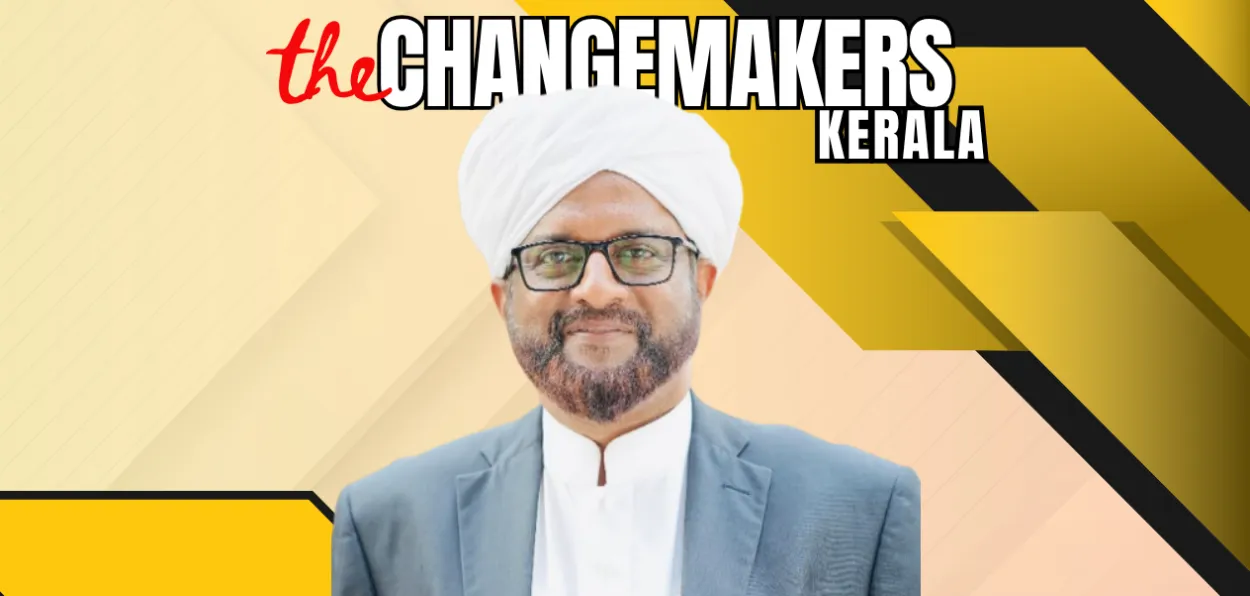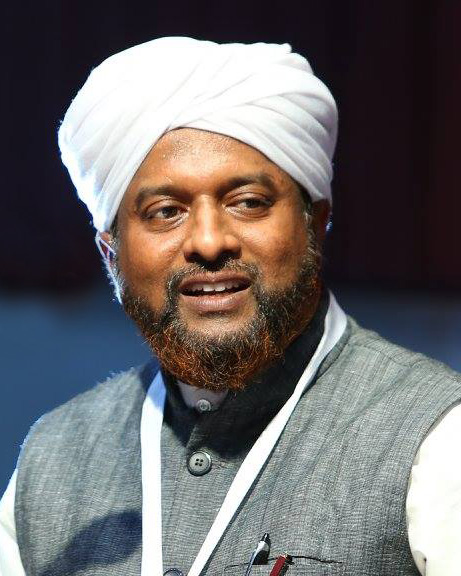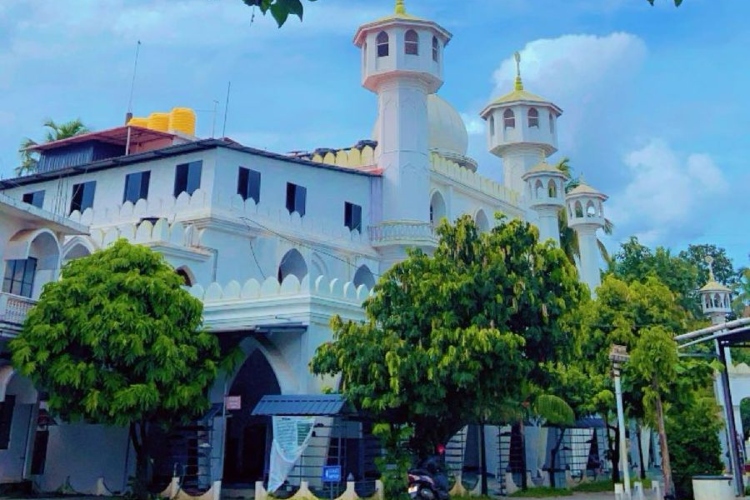
Sreelatha Menon/Trissur
Onampilly Muammad Faizy heads a unique institution that offers an integrated course on religion to its students. His Academy of Shariat and Advanced Studies in Thrissur, Kerala, teaches not only Islamic texts but also Sanskrit and Vedantic texts to its scholars.
Faizy, the principal of the Academy, is himself a Sanskrit scholar from Sri Sankara University in Kalady, the birthplace of Adi Shankara, and his dream to do research in Sanskrit texts remained unfulfilled.
The Academy speaks volumes also about Samastha, a body of Sufi Sunni Muslim scholars, which started this Academy a decade ago.
Onampilly Muammad Faizy
However, the curriculum was redesigned by Faizy.
Onampilly is well known for his discourses, which turn the pages of the Koran and Upanishads as if they were from a single book. His erudition in both Vedantic thought and the Quran is well known.
“The Indian philosophical scenario is vast and I want students at my Academy to know it and not be cut off from it,’’ he says.
His students at the Academy are about 100 in number. Asked if they or their parents had objections to learning Sanskrit, he said it is an academic subject like any other. I believe that you should learn and know every thought rather than be isolated and restricted to just your religion. Knowledge and awareness breed understanding,” he says.
 Onampilly Muammad Faizy
Onampilly Muammad Faizy
Though his talks (available on YouTube) are laced generously with quotes from the Gita and Upanishads, he does not teach Sanskrit at his Academy. “I feel that the study of a language is also a study of the culture that it represents. So, while we learn a language, we are also appreciating the culture of the people who speak it. So, I have three Hindu Sanskrit teachers to conduct the courses.
This interaction removes the cultural barricade between the two. I would not be able to communicate the cultural subtleties as a Hindu teacher would be able to,” he says.
Onampilly says the present education system lacks dharma or value-based education. "Without values, education is hollow.’’
 Academy of Shariat and Advanced Studies, Thrissur
Academy of Shariat and Advanced Studies, Thrissur
But given the diversity of religious faiths in India, schools shy away from including anything on religious philosophies in the curriculum. Asked about this, he says that there is no excuse to deprive students of the rich values that our faiths provide. If his academy can do it, why can’t the schools do it? Is the unasked question.
The principal introduced the Sanskrit language and literature as a compulsory part of the curriculum a few years ago.
Students enter the academy after grade X through an entrance test. They complete their intermediate degree and post-graduation in Islamic studies, and one of the papers is on the Sanskrit language. Faizy’s explanation for this is that he wants students to know everything and not live wearing blinkers.
Why Sanskrit in an institution that teaches Islamic law? What is the relevance? Are there any takers? Is there no opposition?
There are many more questions, but just one answer. “I want students to know everything and be aware of every philosophy and not be isolated,” says the principal.
Onampilly Muammad Faizy
Onampilly has also been giving talks on the Koran and Upanishads and feels that modern schools should include value-based education and not shy away from talking about what religions represent. Without values, education is hollow, he says.
Onampilly is not just open about embracing knowledge irrespective of where it comes from; he has also been enterprising in bringing people of different faiths on a single platform.
He is one of the founders of the CCC in Kerala, and it stands for Council for Community Cooperation. The council has on its board people from different faiths, like the Dalai Lama, Shashi Tharoor, Faizy himself, Swami Hariprasad, Hindu leader Ramachandran, Bishop Antony Vadakkekara, and many others.
The CCC, which has only two centres in Kerala, will soon expand to all districts. It aims to have a common platform of expression for all communities so that no one gets alienated and isolated, says Onampilly.
As he is busy with the upcoming annual meeting of the CCC, Onampilly says that religion is being used by political and vested interests as a tool to serve their vested interests.
ALSO READ: Hadiya Hakeem: Grabbing power through a football
"Every institution is being questioned today," he says, and blames politics and not religion for this. "People are politicising religion so that their interests are served," he says.
